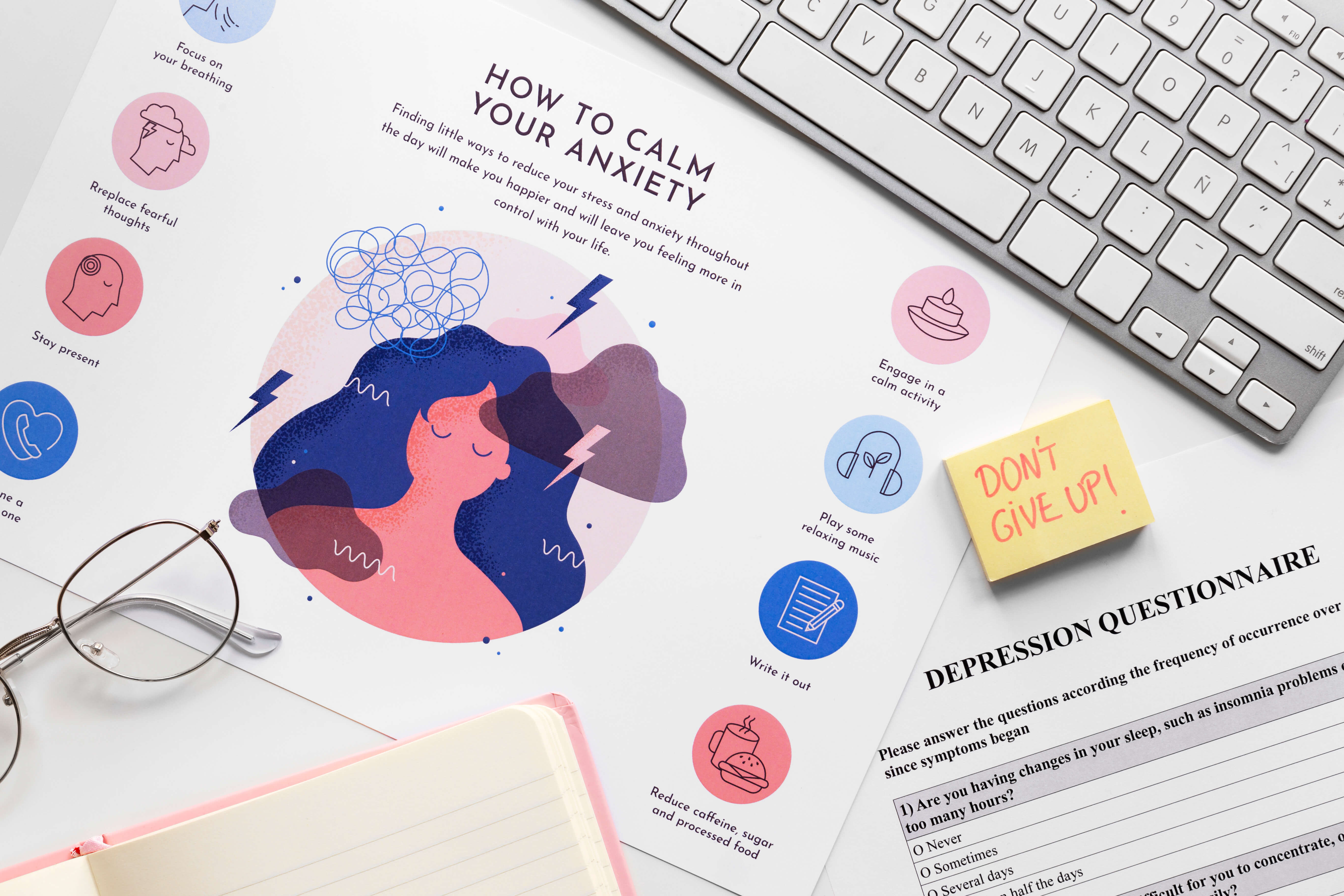Depression Anxiety Stress Scale
Last Updated on July 8, 2024 by TYHO Team

The depression anxiety and stress scale, known as DASS, is an assessment to identify symptoms of mental health disorders.
A qualified professional, such as a Malaysian counsellor or psychologist, carries out the test.
You may receive a comprehensive explanation of your mental wellness based on the DASS results, interpretations, and clinical impressions of your counsellor.
Read about the components of the depression anxiety stress scale, symptoms of the issues, and DASS diagnosis.
The DASS is a tool used to assess the intensity of depression, anxiety, and stress that you may be facing.
The DASS scale is designed to identify, understand, and accurately measure these feelings. It is used for research purposes and by clinicians to diagnose mental disorders.
The depression anxiety stress scale has three parts, with 14 questions each. Each part assesses different types of symptoms.
Part 1: The depression section identifies feelings of sadness, hopelessness, and losing interest in activities previously enjoyed.
Part 2: The anxiety section identifies signs of fear, overthinking, panic, and feelings of worry.
Part 3: The stress section measures how stressed or emotional a person is, their mood swings, and the impact of stress on daily life.
You may be asked to answer the questions based on how you have felt in the past week. Your psychologist may advise you to use a scale of 0 to 3. 0 indicates no distress, and 3 indicates severe distress.
The shorter version of the DASS is the DASS21, which only has 7 questions in each section.
The DASS, previously known as the self-analysis questionnaire (SAQ), is reliable and helpful in measuring mental wellness.
The three components of the scale are as follows:

The depression anxiety stress scale can help you identify several different symptoms.
The symptoms of all three disorders can manifest through physical, emotional, and psychological signs.
For example, sleep is commonly affected if you have stress, anxiety, or depression. Similarly, your mood and control over your emotions may also be affected.
Some signs, however, are specific to each disorder. Depression could indicate low moods, whereas anxiety could indicate constant mood swings or feeling erratic.
Note that the symptoms may be different for everyone. Hence, it is important to have an open discussion with your depression counsellor to identify how the symptoms manifest in your life specifically.
Common signs of stress are:
Symptoms of anxiety include:
Symptoms of depression include:
The depression anxiety stress scale helps differentiate the symptoms of depression, anxiety, and stress.
Although some of the symptoms may appear similar, the core cause, manifestation of signs, and impact on daily life may be quite different.
For example, on the one hand, people with social anxiety may struggle to make friends and have a fear social interactions and situations.
On the other hand, people with depression may interact comfortably but may struggle with isolation, fatigue, and sadness.
Hence, when a professional administers the DASS tool, they can assess the intensity of the emotional distress and offer an effective treatment plan to overcome the issue.
The scale does not consider several factors. This is where your Malaysian Therapist can help you.
After assessing your results, your Therapist may look into several other factors contributing to your distress. These factors include:
After completely interpreting the results, you may receive a comprehensive insight into your mental health and the steps you can take to improve your wellness.
The DASS provides a dimensional insight into psychological disorders. In other words, the difference in emotional experiences is seen as a difference in the intensity rather than segregating it into a distinct category of disorders.
Consequently, while the DASS provides valuable data on the severity of symptoms, it does not directly inform discrete diagnostic categorisations like those found in the DSM or ICD.
Nonetheless, you can gain more clarity about yourself with the help of a professional.
If you want to get diagnosed or simply wish to improve your quality of life, TYHO Malaysian counsellors can help you.
The Depression Anxiety and Stress Scale (DASS) is a tool used for identifying symptoms of depression, anxiety, and stress.
A Malaysian mental health professional may administer the tool to provide a holistic therapeutic plan. The scale has 3 sections, each with 14 questions focusing on different symptoms.
There is also a shorter version, DASS21, with 7 questions per section. The scale helps differentiate the symptoms of each disorder, although they might overlap. The DASS can help you understand the severity of your symptoms and better grasp your emotional distress, but it doesn’t replace formal diagnostic categories.
Talking to a Malaysian Therapist can be helpful for a detailed evaluation and guidance.
